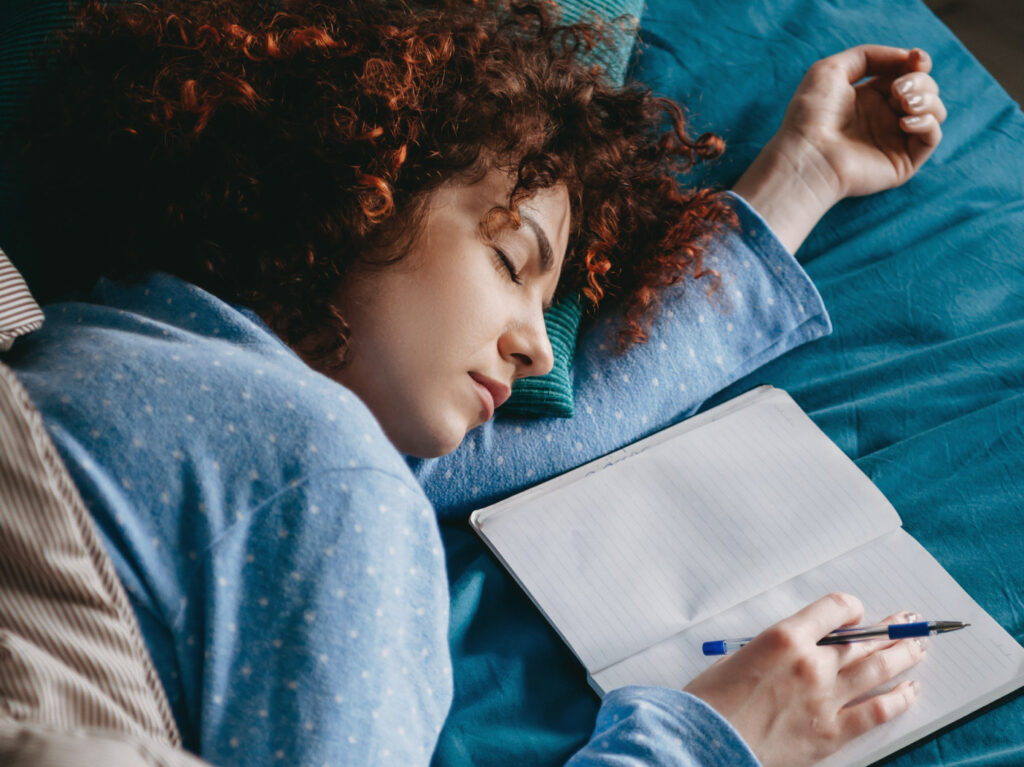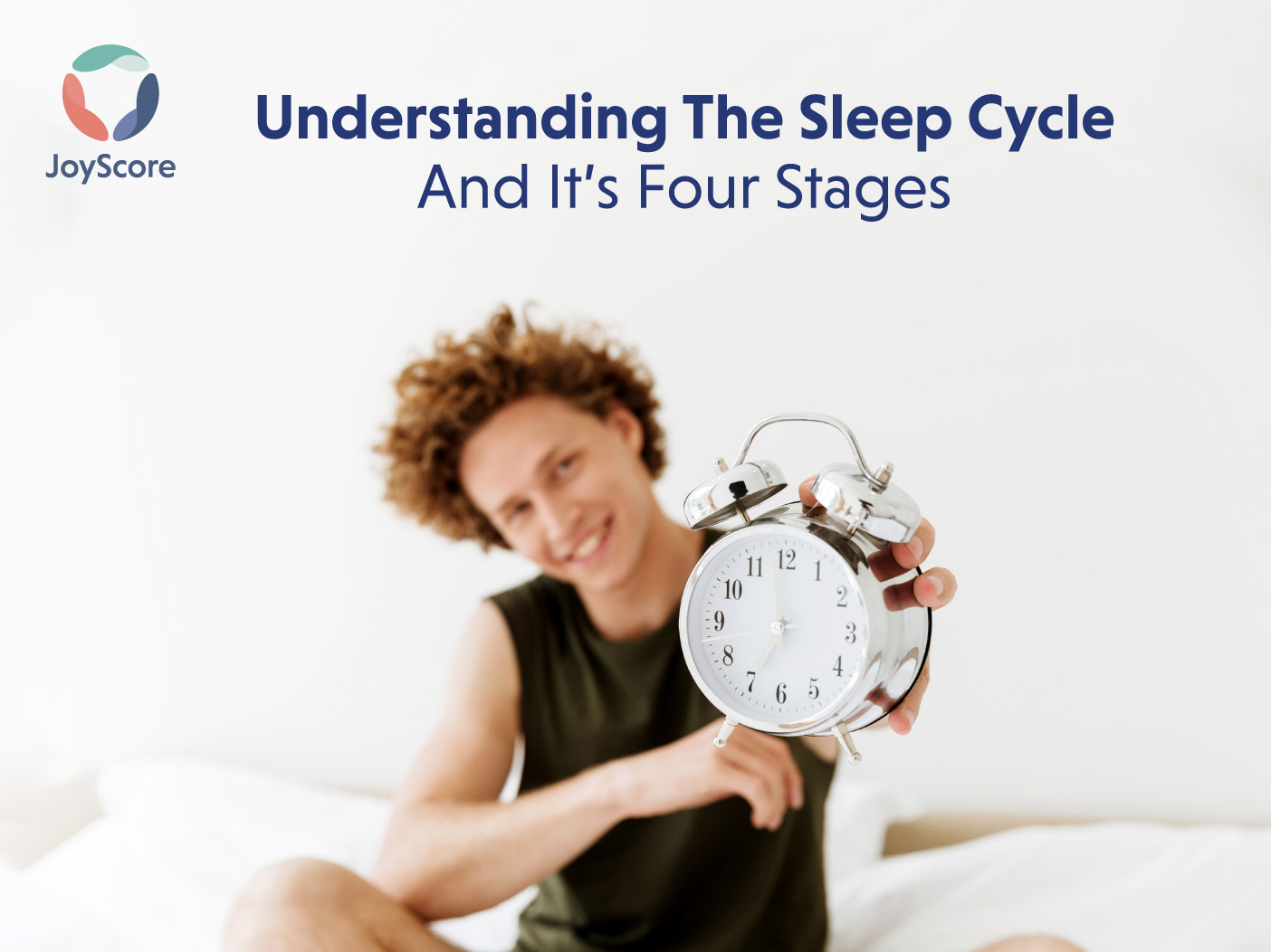For most people, sleep is just a simple process that drifts your body and mind into slumber, but have you ever noticed why your body and mind don’t feel that refreshed some days. This is because your sleep quality was probably poor last night. Sleep quality is decided by the working of sleep cycles, which run between being asleep to being awake.
Sleep cycle doesn’t occur once, but four to six times per night and is formed by four stages. When you fall asleep, the NREM (Non-rapid eye movement) stage 1 begins which is followed by the cycle between NREM stage 2 and 3. Later on, the REM (Rapid eye movement) stage starts which leads to dreaming. As soon as stage 2 is over, a new cycle starts. If we talk about the time period of a sleep cycle, it goes on for about 90-120 minutes before another begins.
NREM STAGE 1
This is the first stage a person enters right after falling asleep. The heartbeat, eye movement, muscle movement and brain activity begins to taper down during this stage. It is also called the twilight stage as one is still aware of certain things going around them and so it is easy to wake them up. NREM stage 1 is also the lightest of all other stages in a cycle and lasts only for a few minutes and so contributes for only 5% of total sleep time.
NREM STAGE 2
This lasts for about 20 minutes in one cycle. People spend about half of their sleep at this stage. As the sleep gets deeper, people become less aware of their surroundings, eye movement stops and body temperature drops. The brain produces some rapid bursts of rhythmic waves known as sleep spindles. These are said to be features of memory consolidation to process the things one learns throughout the previous day.
NREM STAGE 3
This is also known as the delta sleep where the deep sleep enables any outside noise or activity to wake the sleeping person. If one has seen their children sleep walk in the middle of the night, it is happening during this stage only. The main features of NREM stage 3 are slow breathing, relaxed muscles and low blood pressure.
REM STAGE
Apart from complete immobilization of voluntary muscles, the brain is aroused and fully active in this stage. It is the dreaming stage but due to a paralyzed body, one is not able to act out what he or she dreams. In this stage, the eyes move rapidly and breathing becomes faster and irregular.
SLEEP DISTURBANCES
Usually sleep is disturbed in a person with some brain function problem or those who do not have a regular routine. A person is okay if their sleeping hours are the number recommended each night, but if they fail to observe this they can have an abnormal circadian cycle and even mental health problems. For this reason, the most important factors of sleep:
- Sleep time
- Sleep continuity
- Ability to avoid interrupted sleep
There are a wide range of potential causes of interrupted sleep too, which are common for everyone.
- AGE
As one grows older, they observe a dip in their sleep which is a natural change. The problem with this is sleep fragmentation which doesn’t allow people to stay in the deep sleep stage for long. So, they can be easily awoken and not receive proper rest.
- STRESS
Stress can come from anywhere, personal or professional life. However, we often find that at bedtime it’s best to think about these stressful events, leading to us feeling upset. This over-thinking behavior hampers one’s sleep cycle immensely as it becomes difficult to get back to sleep after waking up. Usually this happens with parents having babies and caretakers of patients. These people are often under a lot of stress and worry about their dependents.
- HEALTH
Any physical or psychological health problem can be responsible for disturbing the sleep cycle of an individual.
- Physical problems like restless legs syndrome, bruxism, cardiovascular issues, respiratory problems, diabetes and kidney disease.
- Mental problems like nocturia, hormonal problems, neurological problems, depression, post traumatic stress disorder and anxiety disorder.
Other than existing health problems, certain medications also disrupt the sleep cycle by inducing too much sleep or frequent awakenings during the night.
- SUBSTANCE ABUSE
Addictive drugs and alcohol have always been misunderstood to be helpful substances in inducing sleep. But on the contrary, their overuse has proved to be harmful for the sleep architecture. The truth is that alcohol messes with the normal sleep cycle by decreasing the REM stage when consumed which is followed by a REM sleep rebound as the alcohol wears off. So, irregularity in stages of the sleep cycle doesn’t let the person wake up refreshed the next morning.
- LIGHT
People not following a regular routine like those facing jet lag often are exposed to daylight in different time frames. This inconsistent sleep schedule doesn’t let them maintain their circadian rhythm and leads to a disturbed sleep cycle.
Too much light in the bedroom at night also has the same adverse effects. So, maintaining a sleep environment with dim lights and turning off blue light screens is also very essential.
- POOR SLEEP HYGIENE
Sleep hygiene refers to the habits one practices while sleeping. Some examples of this are: Not brushing teeth before bedtime, not keeping the body clean, late night screen time and choosing to sleep on an uncomfortable mattress all fall into this category.
5 WAYS TO GET DEEPER SLEEP
Here are some practical tips to enjoy a deep sleep each night.
- PHYSICAL ACTIVITY
Exercise of any time, a warm up or strength training, regulates the internal clock of the individual. This means that the physical activity will create a natural pull towards rest when bedtime arrives. However, strive to do more gentle exercises near your bedtime as it helps to calm the body down.

- TRY MINDFUL PRACTICES
A stressful mind can be calmed down using relaxation exercises before going to bed. Some wonderful practices to try when you can’t get to bed are:

- Progressive muscle relaxation
- Sleep stories
- Deep breathing
- Some mild stretches
- Meditation
- A BEDTIME ROUTINE
Going to bed and waking up at the same time reinforces the body’s sleep routine. The time itself behaves as an alarm to guide the individual into a nightly routine.

- DIET
A high fiber diet has also proven to be beneficial to sleep. Fibers work best for the blood sugar levels. As a result, foods like fruits, vegetables and whole grains help an individual stay in the restorative stage of deep sleep for a long time.
Other than what to eat, what we don’t eat is also important. Foods containing too much caffeine like soda, chocolate, tea and coffee are not recommended in this context. They linger in the system for hours and disrupt the sleep cycle.
- SLEEP ENVIRONMENT
A cool, quiet and dark room is one of the basic necessities when it comes to sleeping properly. Some other great ways to improve your sleeping space are:
- Earplugs and/or an eye masks
- Comfortable mattress and pillows
- Soft music
- Scented candles or flowers
CONCLUSION
Reaching a regular sleep routine is not a race and doesn’t happen overnight. It’s about embracing the long term changes that enhance the lifestyle and quality of life. Results may take time, but incorporating these changes into your life will significantly improve your quality of life and sleep!
Download the JOYSCORE APP to learn how to embrace the value of a happy and healthy life.
Download on the Appstore
Get it on Google Play



